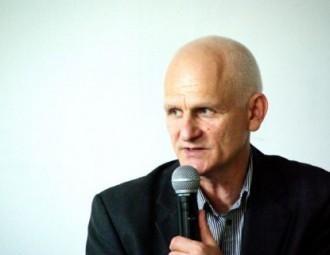On the last day of his visit to the Polish capital the head of the Human Rights Center "Viasna" took part in an international conference, where he talked about the human rights situation in Belarus.
Suddenly, during his speech there was received a telephone call about mining the room in which the event was held.
Ales Bialiatski reported about it after the incident, writes the press service of the Human Rights Center “Viasna”.
Warsaw East European Conference, to which the Belarusian human rights activist was invited, was held July 12 at the University of Warsaw. This annual international forum, organized by the Center for East European Studies at the University, was attended by famous politicians and experts from around the world. The conference theme this year has been the transformation of Poland and the region since 1989. Ales Bialiatski's speech concerned the situation of human rights organizations in Belarus.
"The call about mining came during my speech. Sappers with dogs arrived, we had to go out when they checked the hall. However, no bombs were found. So, the participants returned to their seats and I continued my speech," said the human rights activist.
Let us recall that the first visit of Ales Bialiatski to Poland after his release from jail took place on July 9-12. During these days the human rights defender had a series of meetings - with Polish Foreign Minister Radoslaw Sikorski, with the head of the Office of the President of Poland Jacek Michalowski and with members of the Parliamentary Committee on Foreign Affairs of the Polish Sejm. The human rights fighter also met with representatives of Polish and Belarusian NGOs and Polish journalists.




























